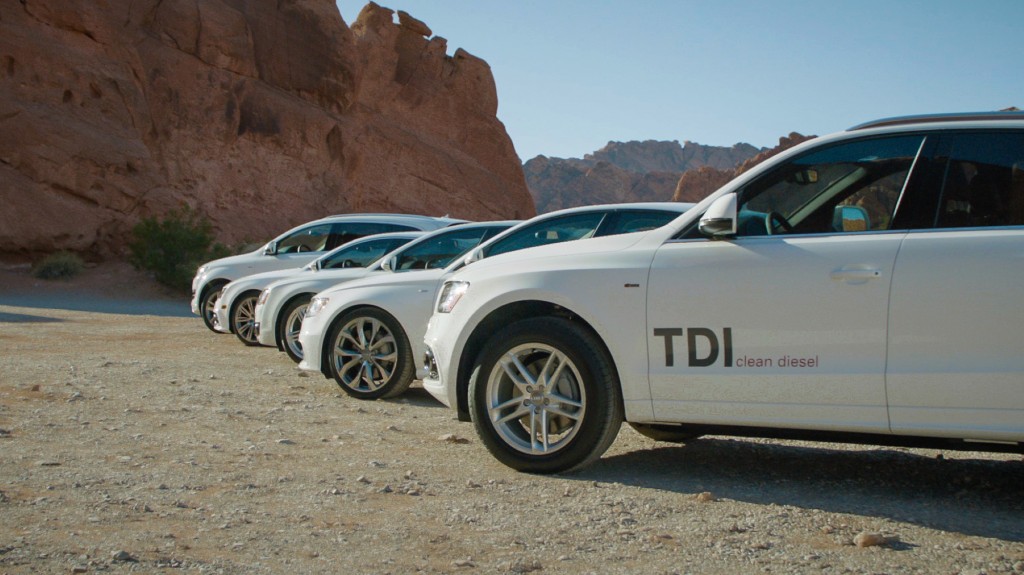Diesel cars and trucks may be more expensive to buy, and the fuel generally costs more per gallon, but owners may still be able to amortize those costs over a fairly short period.
That's the conclusion of a new University of Michigan Transportation Research Institute study, which should put an extra spring in the step of diesel owners.
Average total cost of ownership was found to be lower for diesels, primarily because of lower depreciation.
DON'T MISS: Diesel Car Guide: Every 2015-2016 Car & Light Truck, With Specs: UPDATED
This allows owners of diesel vehicles to recoup their purchase premiums in three to five years, researcher Bruce Belzowski found.
The study compared gasoline and diesel versions of the same model sold at auction in 2012 and 2013.

2013 Audi TDI range
The sample included cars and SUVs from Audi, BMW, Mercedes-Benz, and Volkswagen, as well as medium-duty trucks from Chevrolet, Ford, GMC, and Ram.
Diesels were found to have a lower total cost of ownership than gasoline vehicles, averaging between $2,000 and $7,000 over three to five years.
In this case, depreciation, fuel costs, repairs, maintenance, insurance, fees, and taxes were factored into the cost-of-ownership estimates.
ALSO SEE: Diesel Priced Almost As Low As Gasoline, As Gas Demand Surges
Depreciation is where diesels seem to have the advantage.
Resale values were found to be 30 to 50 percent higher for cars and SUVs, and 60 to 70 percent higher for medium-duty trucks, after three years.
The gap between diesel and gasoline widened after five years, the study says.

2013 Ram 2500 HD
Diesels also incurred lower average total fuel costs, despite the higher price per gallon--by 12 to 27 percent for cars and SUVs, and 4 to 8 percent for medium-duty trucks--due to their greater fuel efficiency.
That's likely a result of diesel vehicles' better fuel economy, as diesel fuel generally costs more than gasoline.
MORE: Are 'Clean Diesels' Actually Not Nearly As Clean As Claimed?
Because of this, new diesel cars and trucks may need to further improve fuel economy to account for any future price spikes, Belzowski concluded.
With looming Corporate Average Fuel Economy standards, manufacturers already have some incentive to do that--and to perhaps offer more diesel models to boost their ratings.
_______________________________________________












